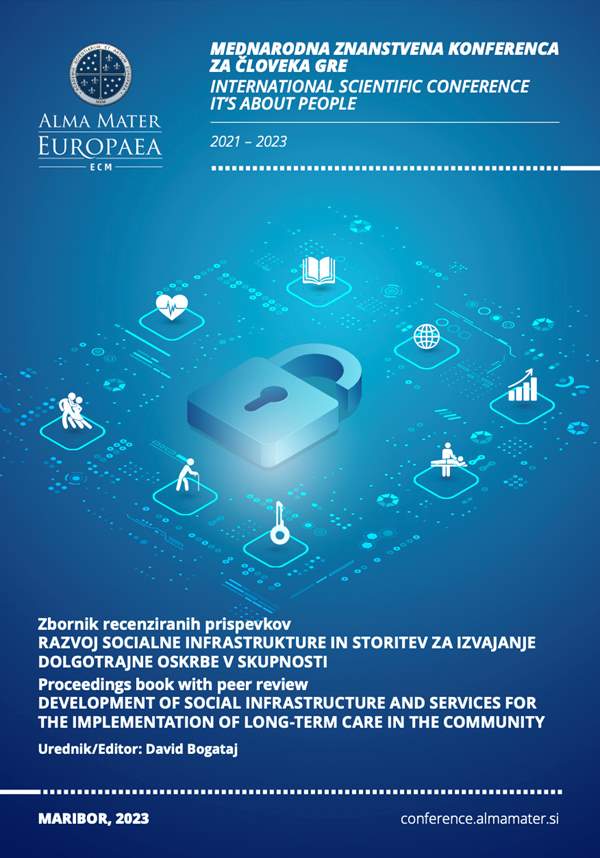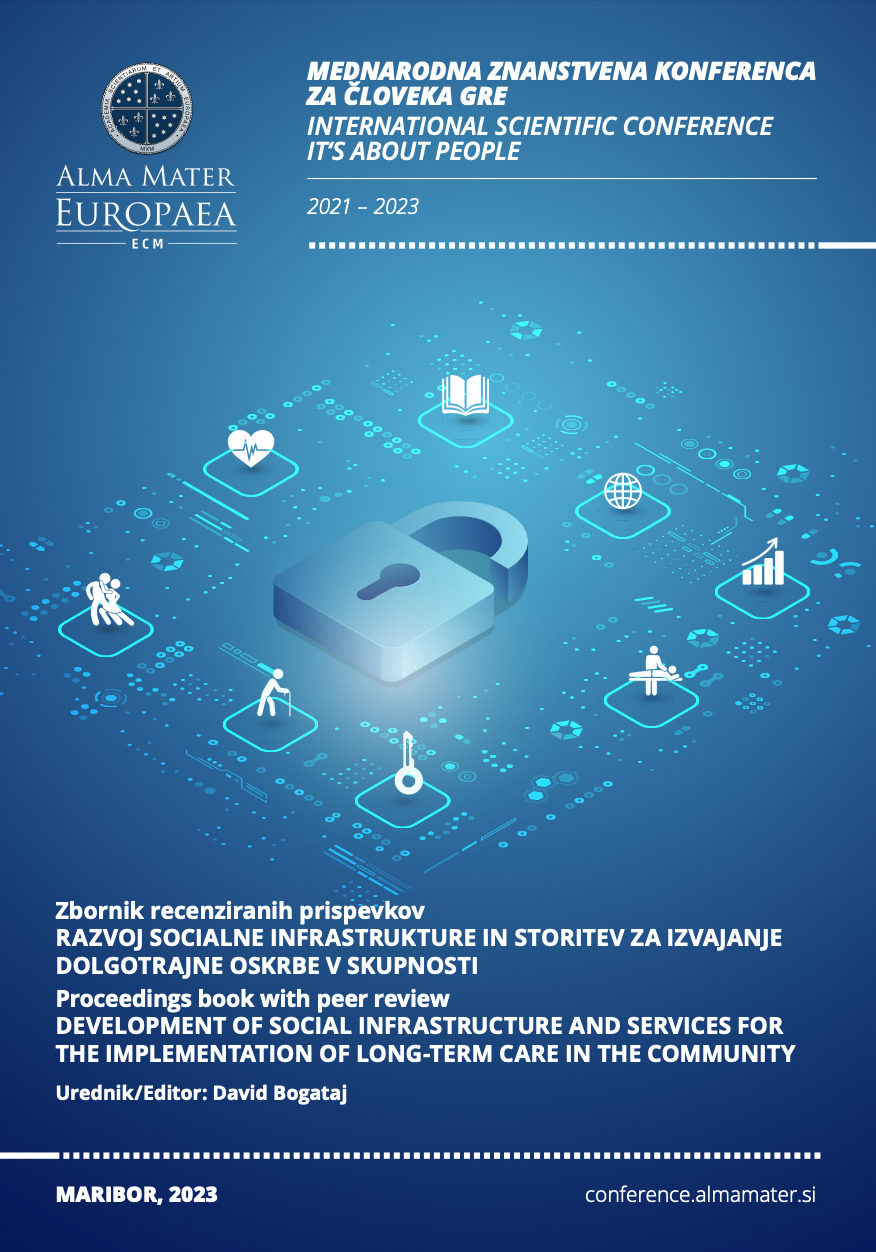
A new proceeding about gerontology

Alma Mater Press published the proceedings, which contain the contributions of researchers from various fields that connect gerontological issues with health issues and support for functional capabilities, urbanism, and spatial planning for facilities intended for the elderly population.
The aging of the population is a global phenomenon in developed countries, representing a challenge and an opportunity for society. As our communities continue to age, the need for a robust social infrastructure to support the well-being and inclusion of older adults becomes increasingly urgent. This Proceedings aims to explore and document innovative approaches, best practices, and research findings related to social infrastructure for older adults«, says editor Dr Bogataj.
A large part of these contributions comes from the results of six projects financed by the Slovenian Research Agency (ARRS), which has recently emphasized the importance of innovation, which is also reflected in its renaming to the Slovenian Research and Innovation Agency (ARIS). These projects are the following: J5-1784 - Creating social value through elderly-friendly managed housing stock in lifelong neighborhoods (1.7.2019 – 30.6.2022), J6-9396 - Development of social infrastructure and services for the implementation of long-term care in the community (1.7. 2018 – 30/06/2021) and Z7-7501 - Planning long-term care at home and in an institutional environment based on the model of multiple declines (1/12/2016 – 31/5/2018), as well as J7-4599 - Health-oriented behavior as a creator of sustainable built development environments (2022 – 2023), L7-3188 - Hierarchical design and financing of the social infrastructure of smart silver villages (2021 – 2023) and J5-3112 - Evaluation of the sustainable development of urban space through the parameters of social infrastructure development and life satisfaction (2021 – 2023). Comparative analyses are also the result of accompanying European COST projects.
When the collection was published, the Professor Dr Bogataj also wrote:
The articles provide proposals for technological solutions and connect economic and sociological findings in the care field for older adults. The paper's emphasis is thus on understanding, designing, and building an adequate social infrastructure for improving the quality of life of older adults and its impact on the quality and economic implementation of gerontological programs.
By "infrastructure," we often consider the large, space-bound physical systems supporting economies. Usually, under this term, we understand road networks, including tunnels and bridges, electrical grids, and communal infrastructure, such as water supply, sewerage, and gas pipelines, fundamental physical and organizational structures our society needs to function. However, this is one of many types of infrastructure that an organization requires to function normally. A less visible but equally important type of infrastructure is social infrastructure. This represents the basis not only for ensuring the well-being of the population but also for economic activities. Social infrastructure comprises the policies, resources, and services that enable people to participate in productive social and economic activities. This includes social services, public education, and health care. The fundamental components of the social infrastructure are also the policy of ensuring adequate supervision and income of the population. Ensuring that individuals and their families have the care they need to meet their personal needs and participate in society is at the forefront of social infrastructure orientation. Therefore, even social care can only be good with adequate knowledge of the economic foundations. Having sufficient income to prepare food and keep a roof over your head is necessary. This is an essential prerequisite for maintaining a minimum standard of living and the ability to participate fully and productively in the economy and community.
Despite the broad definition of the field of social infrastructure as a set of policies, resources, and services that ensure people's participation in social and economic activities, by addressing the various aspects listed above, the Proceedings aim to contribute primarily to a comprehensive understanding of the challenges and opportunities associated with social infrastructure for older adults. The collective insights and experiences presented in this volume are a valuable resource for policymakers, operational care providers, academics, researchers, and anyone striving to develop friendly communities for all generations.
Download the Proceedings book HERE.
